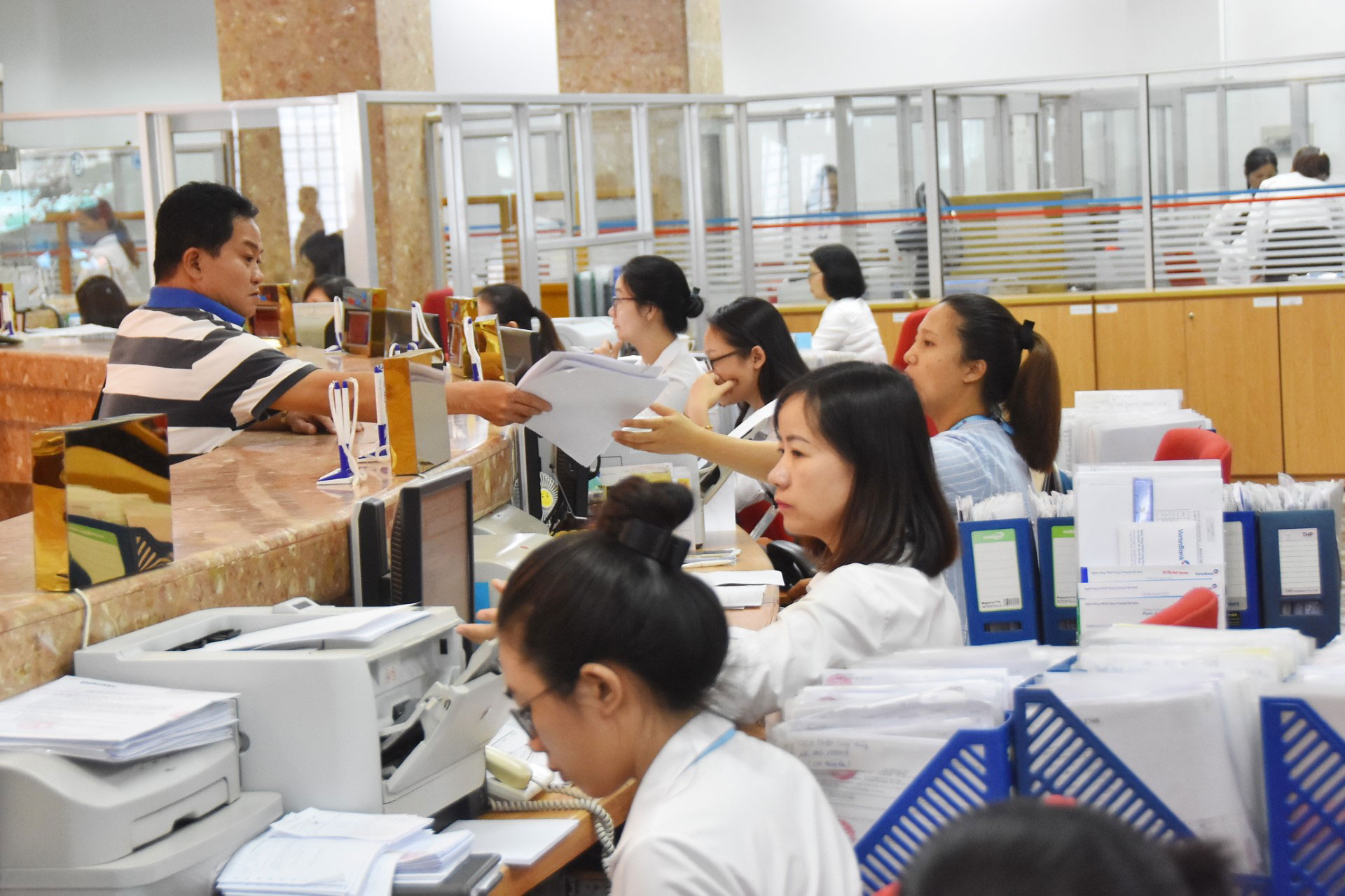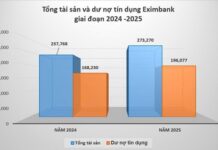Speaking at the recent industry-wide online conference on boosting bank credit in 2024 organized by the State Bank of VN, leaders of many commercial banks believe that interest rates are not the issue at the moment but rather the current challenge is the weak demand of the economy, with businesses not having the need for borrowing, while bad debts have increased over time, forcing credit institutions to tightly control lending conditions.
Wishing to borrow but difficult to access
Speaking with a reporter from Nguoi Lao Dong Newspaper, Mr. Lu Nguyen Xuan Vu, CEO of Xuan Nguyen Group (specializing in honey and honey-related products), confirmed that in the current phase, many businesses are still waiting for clearer signals of economic recovery, so they do not have the need for borrowing for investment purposes.
Some small and medium-sized enterprises have capital needs but encounter difficulties in accessing bank funding. His own company is planning to expand its production of dried fruits and canned fruit juice in 2024, but because it cannot find a source of capital with a reasonable interest rate, it has to resort to fundraising to implement the project.
“Bank interest rates have been at a low level for many years, but companies that want to borrow cheap capital need to settle old loan contracts. The problem is they do not have the funds to settle, and they are not willing to take the risk of finding ways to pay off the loan because there is no guarantee that they will be able to borrow again,” Mr. Vu pointed out.
In addition, the lower the interest rate for borrowing, the more difficult it is for businesses to access it due to tighter procedural requirements and lending conditions. Businesses must have good records with strong financials, profits, and increasing revenues, while after COVID-19, the market declined, agricultural production companies were heavily affected, revenues decreased, making it difficult to have good financial records.
“Many companies, including Xuan Nguyen, accept capital injections or reduced profits, sharing difficulties with consumers. Some companies are willing to temporarily accept losses in order to maintain stable quality, retain market share, but in doing so, they lose points with banks and do not meet the conditions for borrowing,” Mr. Vu disclosed.

Commercial banks are implementing multiple solutions simultaneously to facilitate customer access to loans. Photo: TAN THANH
Meanwhile, Ms. Ngo Bich Quyen, CEO of Vạn Sơn Thịnh Phát Joint Stock Company (Organicfood store chain), reflected that her business is classified in the service sector, so it does not have access to preferential interest rate packages, but can only borrow from commercial banks at normal interest rates of 13% – 17% per year, while the profit margin of the company is just over 10% per year, so it cannot borrow, not to mention retail businesses don’t have many assets to secure loans, so the borrowing limit is very low.
According to Ms. Quyen, during the period when businesses affected by COVID-19 were supported by the state, Organicfood was eligible to borrow a preferential package, but it was only over VND 100 million, which is very low compared to the demand. “We are a retail company for organic food, a link in the organic agricultural production chain, a circular economy, but not receiving credit support also makes it difficult for organic agricultural products to reach the market,” Ms. Quyen said.
According to Ms. Quyen, the company has a need for working capital of more than VND 1 billion with interest rates of 5% – 8% to maintain and develop, reduce the need for external borrowing, and promote the consumption of organic agricultural products. “As a retail company, we have daily cash flow. When borrowing from a bank, we use services at that bank so that they can control the cash flow and ensure repayment of the loan,” Quyen suggested.
Need a large-scale stimulus strategy
At the recently concluded banking industry conference, commercial banks stated that they have already implemented a series of low-interest credit packages from the beginning of 2024 to stimulate loan demand from the market, individual customers, and businesses. However, the January credit growth figures for the entire system decreased by 0.6% compared to the end of 2023, indicating that the economic landscape is still challenging.
Mr. Le Thanh Son, Vice CEO in charge of VietinBank, said that based on the level of credit growth limit, banks have reduced interest rates and increased credit capital in line with the central bank’s guidance. However, to increase the economy’s ability to absorb capital, there must be a nationwide stimulus strategy. Regarding the real estate market, the key is still about solving legal difficulties for projects, not just about reducing interest rates.
Mr. Nguyen Thanh Tung, CEO of Vietcombank, also believes that alongside flexible monetary policy and further reduction of lending interest rates to support businesses, macro solutions from the government and ministries are needed to continue resolving difficulties for businesses in various sectors, especially real estate projects.
From a specialist’s perspective, Dr. Nguyen Tri Hieu said that credit growth depends on the level of economic growth. In the first two months of 2024, Vietnam’s economy did not show much improvement – many businesses suspended their operations, weak purchasing power, slow export recovery, leading to a decrease in credit demand for January 2024.
To revive credit, Vietnam needs to implement many solutions. Among them, the most important solution is for the government to accelerate disbursement of public investment capital to create more jobs, increase income for people, and stimulate purchasing power. Then, businesses will have a demand for borrowing to continue production and business activities.
In addition, the government needs to establish a National Credit Guarantee Fund to support potential businesses without collateral. At the same time, the state needs to provide favorable conditions to attract foreign investment capital, create additional new capital flows, and increase employment for workers.
Improving loan procedures
Mr. Pham Toan Vuong, CEO of Agribank, said that in 2023, the bank had reduced interest rates 6 times, and at the beginning of this year, it reduced rates once more. To promote credit, the bank is implementing a VND 60,000 billion credit package for customers to use for consumption, investment, export… with reduced interest rates of 1.5% – 2.5%, some customers even enjoy lower rates than the bank’s input deposit rates.
“The bank is concentrating on improving loan procedures, applying technology and population data to loan operations to facilitate customer access to capital. We also commit to greatly increase disbursement in the agriculture and rural sectors,” Mr. Vuong said.
(To be continued)














